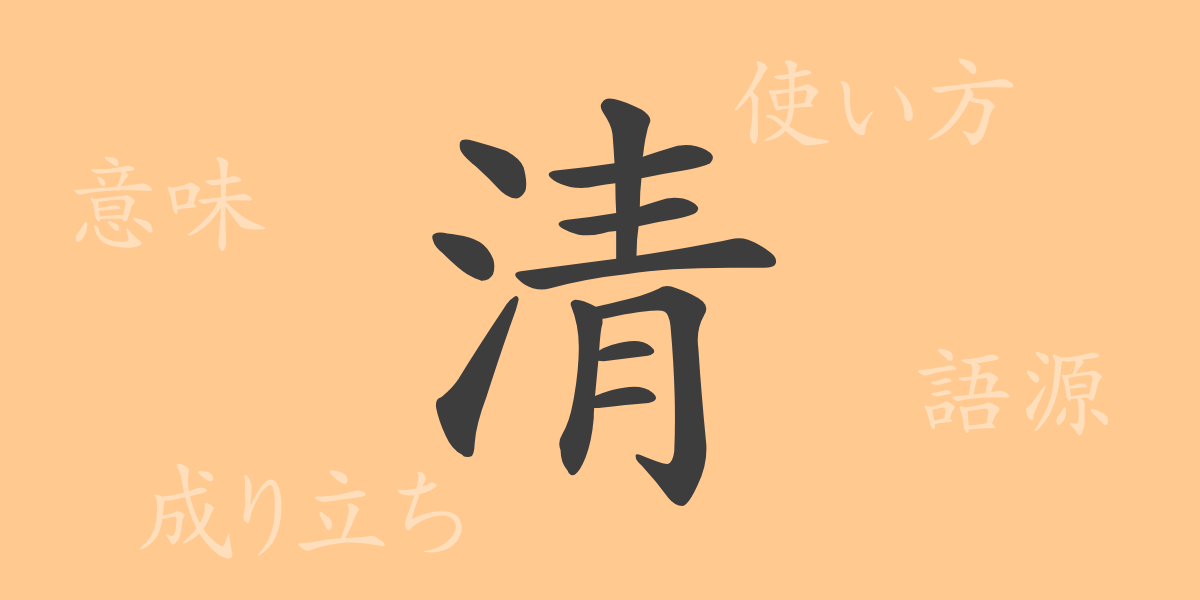The depth of Japanese language is reflected in its use of kanji, each with its own history and meaning. The kanji ‘清’ (きよい/きよらか/さやか) is especially prevalent, used in a wide range of contexts. This article delves into the origins, contemporary usage, and related phrases and proverbs of ‘清’, exploring its appeal.
Origins of 清
The kanji ‘清’ traces back to ancient China, initially formed from the ideograms for ‘water’ (‘氵’ – さんずい) and ‘blue’ (‘青’), symbolizing the color of clear water. This evolved to signify purity and cleanliness. Over time, the character morphed into its current form, still deeply imbued with its original connotations of clarity and purity.
Meanings and Usages of 清
‘清’ conveys clarity, purity, and transparency, depicting states of being clear, pure, or unblemished. It also symbolizes peace of mind and moral cleanliness. Used as adjectives, adjectival nouns, and nouns, it appears in terms such as ‘清水’ (clear water), ‘清純’ (innocence), ‘清掃’ (cleaning), and abstract concepts like purifying one’s heart.
Readings, Stroke Count, and Radical of 清
‘清’ is firmly rooted in the Japanese language, reflected in its various readings and structure:
- Readings: On’yomi ‘セイ’, ‘ショウ’, Kun’yomi ‘きよい’, ‘きよまる’, ‘きよめる’
- Stroke Count: 11 strokes
- Radical: 氵(さんずい)
Phrases, Idioms, and Proverbs Using 清
The kanji ‘清’ is featured in numerous idioms and proverbs, reflecting Japanese values and aesthetic sensibilities:
- 清々しい(すがすがしい) – Feeling refreshed or clear-hearted.
- 清貧(せいひん) – The virtue of living a pure and simple life, even in poverty.
- 清水の舞台から飛び降りる(きよみずのぶたいからおりる) – Taking a bold, decisive action, akin to leaping from the stage at Kiyomizu Temple.
- 清廉潔白(せいれんけっぱく) – Being incorruptibly honest and pure.
- 清風明月(せいふうめいげつ) – A state of mental clarity and detachment from worldly matters.
Conclusion on 清
The kanji ‘清’, reflecting both form and meaning, is a key to expressing Japanese aesthetic sensibilities. Like clear water, it washes over us, purifying and bringing peace, deeply embedded in our language and daily communication. The words containing ‘清’ enrich our expressions, conveying our emotions and values effectively.

























